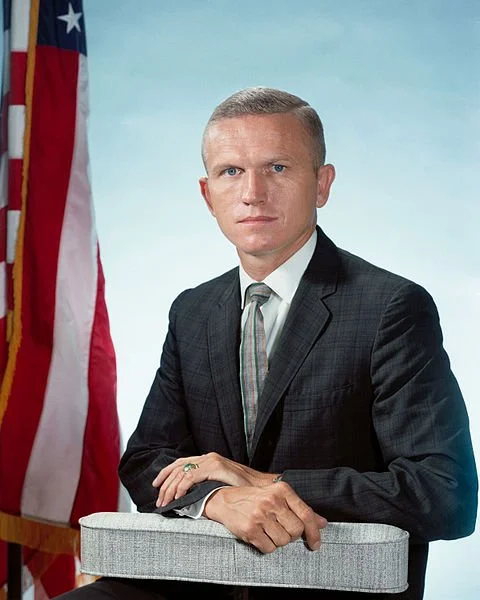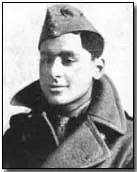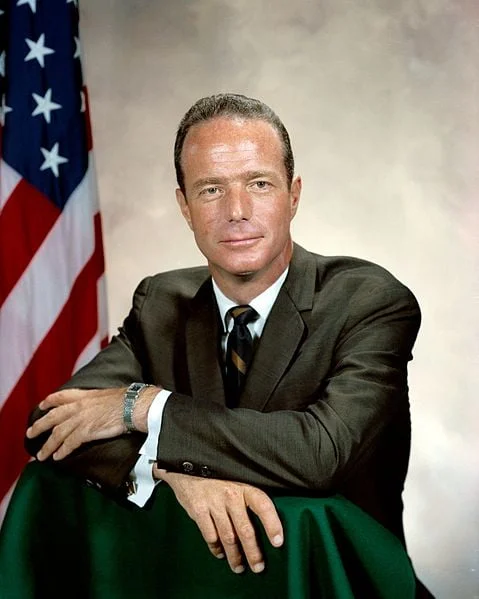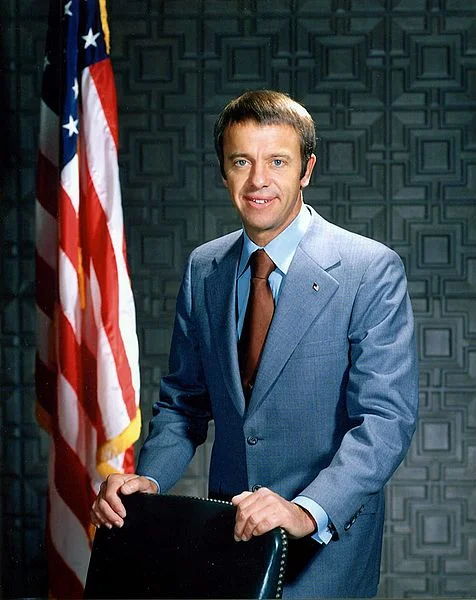Real Celebrities Never Die!
OR
Search For Past Celebrities Whose Birthday You Share

source:wikipedia.org/
Frank Borman
Birthday:
14 Mar, 1928
Date of Death:
07 Nov, 2023
Cause of death:
Natural causes
Nationality:
American
Famous As:
Airline
Age at the time of death:
95
Frank Borman's Quote's
Early Life and Education
Frank Borman, born on March 14, 1928, in Gary, Indiana, grew up during the Great Depression. Despite economic challenges, he excelled academically and developed a deep interest in aviation. His determination and resilience, traits shaped by his early years, paved the way for a remarkable career. Borman attended the United States Military Academy at West Point, graduating in 1950 with a Bachelor of Science degree.
Military Career and Further Education
After West Point, Borman joined the United States Air Force, quickly rising through the ranks due to his skills as a pilot. He served with distinction during the Korean War, showcasing his leadership and commitment to excellence. After the war, he pursued further education, earning a Master of Science degree in aeronautical engineering from the California Institute of Technology in 1957.
NASA Selection and Gemini 7 Mission
In 1962, NASA selected Borman as part of the second group of astronauts, marking the beginning of his influential role in space exploration. His first space mission came in December 1965 aboard Gemini 7, where he and fellow astronaut Jim Lovell set a new record for the longest manned spaceflight, spending 14 days in orbit. This mission was a critical step in preparing for future lunar exploration.
Apollo 8: Orbiting the Moon
Frank Borman’s most iconic achievement came with the Apollo 8 mission in December 1968. Along with Jim Lovell and William Anders, he became one of the first humans to orbit the moon. Their groundbreaking mission captivated the world and laid the foundation for future lunar landings. Borman’s famous Christmas Eve broadcast from lunar orbit remains a moment of reflection and unity in space history. His leadership during the mission demonstrated his technical skill and calm under pressure, guiding the crew through unforeseen challenges.
Post-NASA Career and Leadership at Eastern Air Lines
After leaving NASA in 1970, Borman transitioned to the private sector, taking on various executive roles. From 1975 to 1986, he served as the CEO of Eastern Air Lines, leading the company through both successes and challenges. His tenure tested his management skills as the aviation industry faced turbulent times, but Borman’s leadership shone through.
Commitment to Public Service and Education
Despite the demands of his corporate career, Frank Borman remained committed to public service. He served on advisory boards and committees, sharing his expertise in aviation and space exploration. His dedication to advancing scientific knowledge extended well beyond his astronaut days, making significant contributions to both fields.
Personal Life and Family
Frank Borman married Susan Bugbee in 1950, and together they raised two sons and a daughter. Throughout his high-profile career, Borman remained grounded, balancing his demanding professional life with a strong sense of family. His ability to maintain this balance speaks to his resilience and values.
Legacy and Passing
Frank Borman’s legacy endures through his contributions to space exploration, aviation, and leadership. His role in “Apollo 8”, pioneering space missions, and his impact on the aerospace industry cement his place in American history. Borman’s life story, filled with passion, perseverance, and a pioneering spirit, continues to inspire future generations. He passed away on November 7, 2023, leaving behind a legacy that transcends space and time.
Conclusion: An Inspiring Legacy
Frank Borman’s achievements go beyond his historic space missions. His leadership in aviation, his dedication to public service, and his strong family values all contribute to his lasting legacy. Borman’s life reminds us that with determination and a pioneering spirit, we can reach unimaginable heights, whether in the vastness of space or on Earth.
Name:
Frank Borman
Popular Name:
Frank Borman
Gender:
Male
Cause of Death:
Natural causes
Spouse:
Place of Birth:
Gary, Indiana, U.S.A
Place of Death:
Billings, Montana, U.S.A
Occupation / Profession:
Personality Type
Adventurer: Flexible and charming artists, always ready to explore and experience something new. He had a adventures nature which was the success behind his risky missions.
After leaving NASA, Borman had a successful career in the private sector. He served as the CEO of Eastern Air Lines, guiding the airline through both prosperous and challenging times in the aviation industry.
Borman was an accomplished aircraft modeler and rebuilt a World War II Bell P-63 Kingcobra fighter, which won the Grand Champion Warbird award at the Oshkosh air show in 1998
Borman was the first human to fly around the moon.
Frank Borman set a record for the longest continuous spaceflight during the Gemini 7 mission in 1965. He and Jim Lovell spent 14 days in space, conducting various experiments and paving the way for longer-duration missions.
Air Force Distinguished Service Medal
NASA Distinguished Service Medal
Presidential Medal of Freedom



